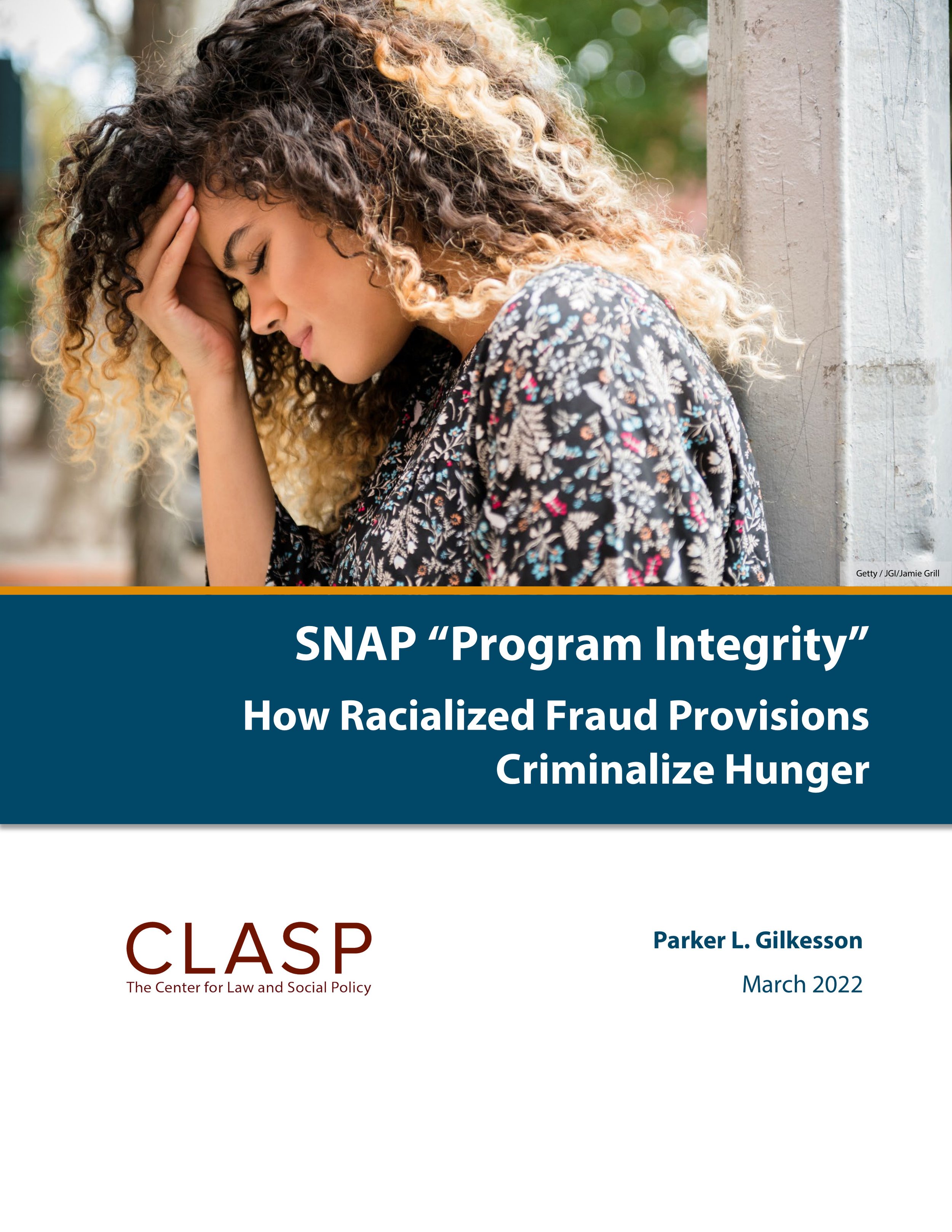By Parker Gilkesson
Health care, food, secure housing, and a livable wage are basic human needs. And seeking the help you need to succeed is a statement of human dignity and justice. However, coded language, dog-whistling, and racist stereotypes have reinforced the lie that folks receiving public benefits are exaggerating how poor they really are and that they are likely committing fraud. People experiencing poverty, particularly people of color, have routinely been profiled and policed, leading to higher rates of arrests and fines due to minor offenses. Over-policing and criminalization of people experiencing poverty and hunger also shows up in public benefit programs, including the Supplemental Nutrition Assistance Program (SNAP).
At a minimum, those who receive public benefits are forced to endure intrusive questioning, public scrutiny of food choices, and even surprise visits to their homes. However, charges of fraud can lead to disqualification from public benefits and even jail time. This brief will explore the damage of criminalizing hunger through charging SNAP recipients with Intentional Program Violations (IPVs). The report concludes with a list of equitable, anti-racist solutions that shift the focus from fraud and program integrity to dismantling systemic, historical, and structural inequities that exacerbate hunger, while at the same time trusting SNAP recipients to know what’s best for their families.
Of course, no program can survive if it does not take abuses seriously. However, when actions taken in the name of improving program integrity have a strong negative and racially skewed impact on public perceptions of the program, policymakers have a moral obligation to first determine whether those actions achieve their stated goals and then look for less harmful ways to fight fraud. They also must repair the harm these actions have inflicted on innocent recipients’ dignity and trust in government.
Historically, anti-hunger advocates have been afraid to criticize the negative consequences of the focus on “program integrity” and its disproportionate impact on people of color for fear of being accused of defending fraud or legitimizing racist tropes. The reality is that we must properly discuss and address fraud, program integrity, and the over-policing of people experiencing poverty or “aporophobia” to achieve policies that reflect equity, trust, and truth instead of mistrust, mistreatment, and systemic oppression.
Washington DC: CLASP, 2022. 26p.




